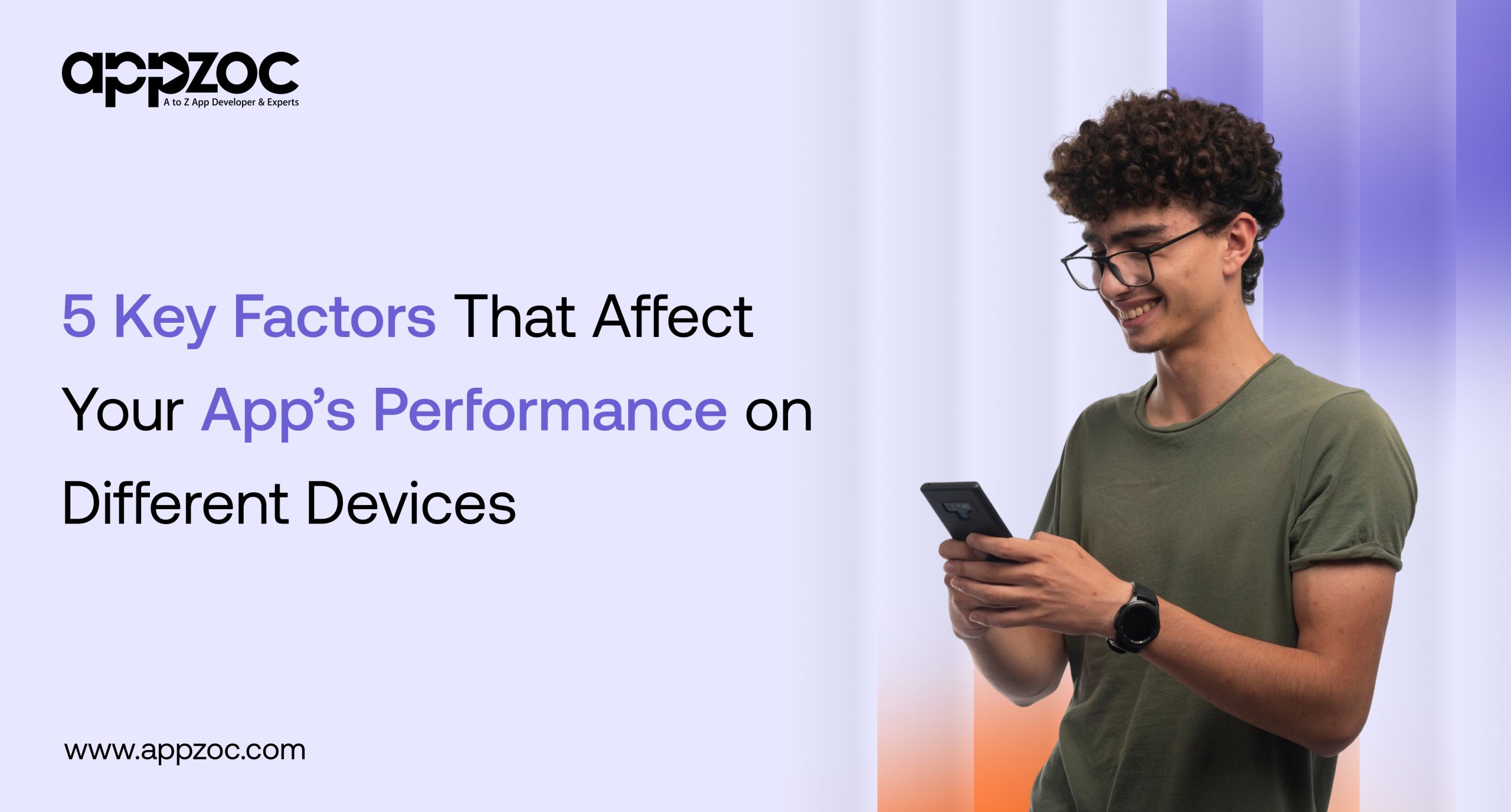
Flutter
Make the most of this cutting-edge technology by developing apps quickly! Our Flutter solutions have amazing features that can be used to create sleek, high-performance apps that can scale seamlessly across platforms.

In the present generation, mobile phones are very crucial in business sectors. They play an important role in analysing how businesses and individuals interact with the audience. It is essential to ensure that the app performance is smooth and engaging, thus satisfying the users. However, several multiple factors can impact the application performance and addressing them is essential in leading a seamless user experience.
Many iOS and mobile app development companies in Kerala have risen in their business over the years with this increasing demand for the iOS and Android Operating systems. The performance of the mobile app is heavily influenced by the hardware specification of the devices it runs on. Let’s look at the 5 key factors that affect your App’s performance on different devices. Also, we will look at how to optimize your app to ensure a consistent performance and experience for the users.
Device specifications
App developers mainly face a challenge with device fragmentation. It is seen that App performance is based on the hardware specifications being used. Some factors, such as the speed of the processor, RAM and storage capacity, affect the performance of the application. They impact the smoothness of app performance while operating. Other than this, performance across multiple platforms can also be complex. Some devices may lag and have limited processing power, which can cause slow response times and buffering animations. Different screen sizes require adaptable UI elements to maintain consistency. Also, older devices may not support the latest features or updates, leading to crashes or broken functionality.
How to optimise:
This can be optimised by using responsive design principles to create adaptable UI layouts. Another way to optimize is by implementing adaptive performance scaling. This can be placed based on the device’s processing power. Conducting extensive testing on multiple devices, including older models, to ensure smooth performance.
Operating system versions
Operating systems play an important role in analysing the performance of the application along with its compatibility. The operating system update introduces new features with certain security enhancements and performance optimizations. They significantly impact how applications can function. However, not every user adopts these updates simultaneously. Sometimes,the performance optimizations in new OS updates might not be reflected in older versions. This can lead to inefficiencies. The App performance may vary with different platforms, with changes in APIs and system-level functionalities.
This can be optimized by maintaining backward compatibility by supporting older OS versions in a reasonable range. Along with this, regularly update your app to align with the latest OS version features and optimization.
Network Conditions
Network conditions play an important role in analysing the performance of any application. The mobile applications rely on network connectivity for critical functions such as extracting data or syncing with cloud services. The quality and performance of the application, along with its reliability in network connectivity, significantly impact how well an app functions. With the mode of speed, network performance is also judged. An unstable network mostly leads to lower performance, which reduces user engagement with the application, along with leading app crashes and data loss.
Third-party dependency
The implementation of third-party frameworks has helped accelerate the development. This not only saves time and money, it also increases the complexity of the application. Many developers are using this to improve performance and functionality, along with adding features. These external dependencies can impact an app’s performance. The app performance can be affected further with poor optimisation of third-party libraries. They can introduce memory leaks, excessive CPU usage, and unnecessary background tasks. Similarly, frequent updates to external libraries may cause compatibility issues or unexpected behaviour.
Optimisation Tips: Certain methods, such as conducting regular auditing, can optimise third-party dependency. Unused and redundant dependencies can be removed, ensuring better app performance with reduced app bloating.
Conclusion:
An application with better performance and a smoother user experience is a crucial factor. This allows for engaging results thus bringing more audience engagement. With the following strategies and addressing each of them, the developers of app development companies can ensure their apps perform efficiently. Being the best app development company, these challenges, such as device fragmentation, OS versions, network conditions and third-party dependencies when checked, help in enhancing user satisfaction, contributing to higher retention rates and the overall success of the business